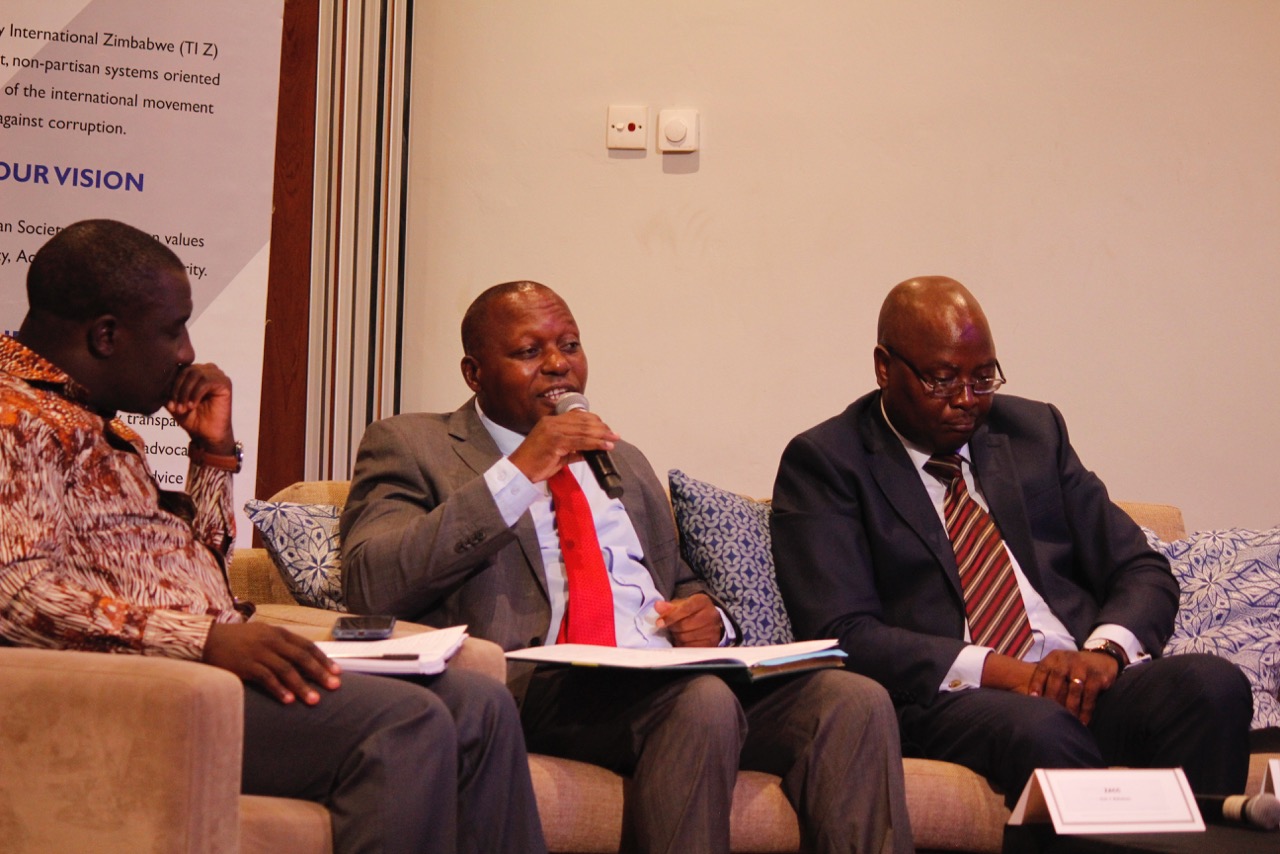By Joyce Mukucha
Transparency International Zimbabwe (TIZ) with support from Sweden has launched the Corruption Perception Index Results reports on Gendered Corruption Barometer and the Corruption Impact Analysis on Tax Administration and Revenue Mobilization.
The presentation of reports and findings was aimed at curbing sexual extortion (sextortion) as well as sexual harassment, which are on the rise in Zimbabwe.
Speaking at the launch in Harare on the 23rd of January 2020, the TIZ Deputy Chairperson Praxedes Dzangare said corruption affects the achievement of Sustainable Development Goals hence the organisation was making concerted efforts to ensure that all forms of corruption are mitigated.
In the context of corruption and the business environment, World Bank 2020 findings revealed that there were higher opportunities for corruption in economies where excessive red tape and extensive interactions between private sector actors and regulatory agencies are necessary to get things done.
Presenting the findings of the conducted research on corruption, gender researcher, Naome Chakanya said there was need for a number of recommendations to be put in place, which will go a long way in improving accountability and transparency in tax administration in Zimbabwe.
She said the economy of Zimbabwe was now highly informalised and the level of informalisation is associated with tax evasion with women constituting a larger percentage in the informal sector being affected more with corruption.
In Zimbabwe, she added that taxes have grown and become a major source of Government’s revenue.
“Tax morale is very low in Zimbabwe so it is important to enhance it. Automated tax payment systems expedite the extractive industries transparency initiatives and simplify tax systems and influences tax reforms,” she said.
The International Monetory Fund 2019 study revealed that curbing corruption would deliver an additional of US$1 trillion in tax revenues annually across the world.
The Zimbabwe Anti Corruption Commission (ZACC) spokesperson, Commissioner Jonh Makamure stressed that the commission was working closely with TIZ in the development of the national anti corruption system to guarantee that there is equal representation of men and women. He said there was need for ZACC to work with other stakeholders to fight the vice.
“As a commission, we are very alive and we are making tremendous actions to address unequal representation of males and females who work in different sectors. I also want to assure you that new charges pertaining corruption and sexual harassment and sextortion are being put in place. We are an open commission and everyone is free to engage us to make sure that we go forward together as one nation free from corruption,” Commissioner Makamure said.
Speaking from a gender perspective, the Zimbabwe Gender Commission Chief Executive Officer, Virginia Muwanigwa said that women especially those with disabilities have been pushed to the economic margins henceforth becoming more vulnerable to corruption.
Mrs Muwanigwa said ZGC as a human rights institution remains committed to its role to deal with issues of gender by ensuring that gender equality becomes a reality in the and a right as well.
“In as much as corruption is concerned, we are working with TIZ to make sure that issues of sextortion and sexual harassment are addressed. We are putting in place systems and mechanisms which continue to monitor the prevalence of equality in work places,” she said.
A representative from UN Women highlighted that corruption is a global phenomenon and a major obstacle to development and economic growth. Although it affects all social classes and groups, women (and poor women in particular) are among the most affected.
